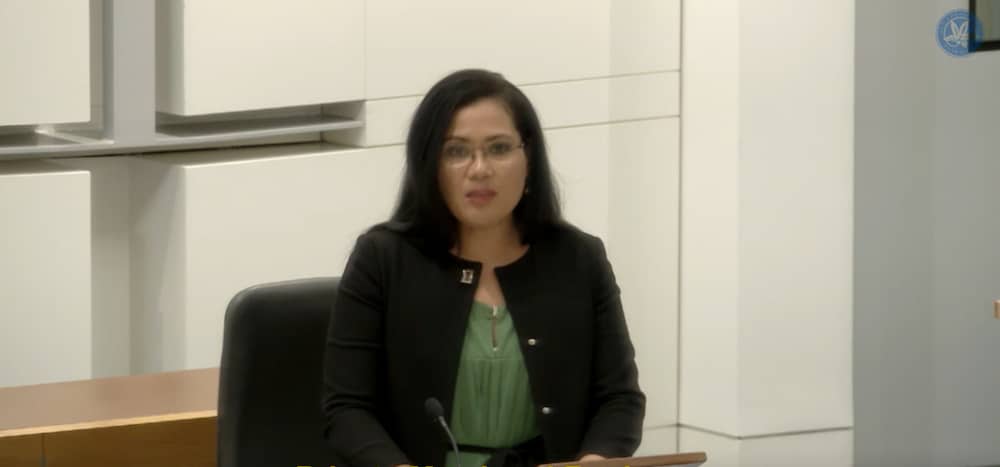A proposed investigation into racism at the ACT’s prison, the Alexander Maconochie Centre (AMC), will not take place.
The AMC has made headlines in recent years for a spate of deaths, beatings and humiliations. An Indigenous man – victim of a bashing that left him in a coma for a week – died of a drug overdose in 2016; Aboriginal inmates have been assaulted, and relatives were not notified; and staff have played ‘Hangman’ with the names of Aboriginal prisoners. Last month, an Aboriginal woman prisoner – a rape survivor – alleged that she was strip searched in front of male prisoners.
Elizabeth Kikkert, Shadow Minister for Aboriginal and Torres Strait Islanders, moved on Tuesday for an independent, external review into institutional and systemic racism at the AMC, and which would also recommend ways to eliminate the problem. This motion was put forward on behalf of the Indigenous community.
Mick Gentleman, Minister for Corrections, amended the proposal to remove all reference to the AMC; instead, the government will continue with its Indigenous-led review of Indigenous overrepresentation in the criminal justice system. ACT Labor and Greens MLAs supported this amendment.
Indigenous incarceration rates in the ACT have increased from 29 per 100,000 adults in 2009–10 to 110 in 2018–19, according to the Productivity Commission’s Report on Government Services 2020. Indigenous people are almost 19 times (crude rate) or 15 times (age-standardised rate) more likely to be imprisoned than non-Indigenous people.
Mrs Kikkert welcomed the ACT Government’s 2019 $1.35 million justice reinvestment in culturally-appropriate support; the review into overrepresentation; and their commitment to reduce recidivism rates among Indigenous offenders by 25% by 2025.
“[But] The rate at which they and their kin are locked up is not the only issue for First Nations people in Canberra,” Mrs Kikkert said. “The actual experience of incarceration is a major issue as well.”
Mrs Kikkert said Aboriginal Canberrans had lost confidence in the AMC and in the broader criminal justice system because of incidents at the prison.
According to the 2019 Healthy Prison Review of the AMC, 43% of detainees reported that their needs as an Indigenous person were ‘rarely’ or ‘never’ met. (In contrast, 80% of staff believed the AMC respected and recognised the needs of Indigenous detainees.) Other Indigenous Australians had come to Mrs Kikkert with stories of relatives in prison.
“They have lost confidence in the system and something needs to happen to regain their trust,” Mrs Kikkert said. “All those who have approached me have insisted that an inquiry must be truly independent and external to the government. Anything less, in their eyes, will be insufficient to restore their trust in an institution that affects people they know and care about.”
Mr Gentleman, however, argued that the broader issue of overrepresentation could not be solved by focusing on one part of the justice system, but through a whole-of-government approach and an Indigenous-led review. He said ACT Corrective Services were committed to addressing overrepresentation through maximising culturally representative practices and rehabilitation.
This year, for instance, Mr Gentleman said, the government would outline best practice principles for staff working with Indigenous people in custody and under community supervision.
He said the AMC also has an Indigenous service unit of four staff, including a woman liaison officer (appointed last year); it has begun quarterly lunches for detainees with elders, and once COVID-19 restrictions are relaxed, children and family members of women in prison will be able to visit them for jewellery-making, dance, and storytelling workshops.
Rachel Stephen-Smith, Minister for Aboriginal and Torres Strait Islander Affairs, acknowledged that systemic racism existed across the community as a fundamental inequality of systems and processes, and as an environment in which racism was not called out or addressed. The ACT Aboriginal and Torres Strait Islander Agreement 2019–28 had identified discrimination as a core area.
Shane Rattenbury, Attorney-General and former Minister for Corrections, argued that the Government was investing in the front end of the system – keeping Indigenous people out of prison. ACT Corrective Services and Indigenous organisations had programs helping people at risk of involvement with the criminal justice system, or assisting ex-prisoners return to society; last year, the government had introduced parole time credit, a drug and alcohol court, and Indigenous sentencing courts headed by elders.
But the Canberra Liberals believe – as both party leader Elizabeth Lee and Mrs Kikkert said – that merely proceeding with a review into overrepresentation was not enough.
“This sorry excuse for an amendment by Minister Gentleman is patronising and completely misses the entire point of the purpose of Mrs Kikkert’s motion,” Ms Lee said.
“Abandoning those on the inside, sweeping racism under the rug; this whole debate is a distraction from the issue within the facility of the AMC,” Mrs Kikkert said.
She and Ms Lee accused the Government of lacking respect for Indigenous people.
“I strongly suspect that many Indigenous Australians in the ACT will see the decision made by you lot to ignore their request as further evidence of institutional and systemic racism,” Mrs Kikkert said. “They have not listened to the Aboriginal and Torres Strait Islander people; they are not respecting them by dismissing this inquiry. By saying no to this important inquiry, they have placed racist treatment of Aboriginal and Torres Strait Islander people as not very important.
“For people and the government – you lot – not to listen to the plea and the cries of our Aboriginal and Torres Strait Islanders within the ACT – shame on you, each and every one of you in the cabinet that decided to amend this important inquiry into systemic racism,” Mrs Kikkert said.
For more news:



